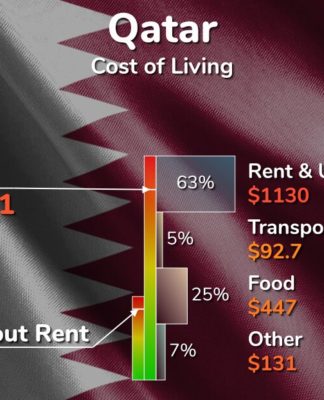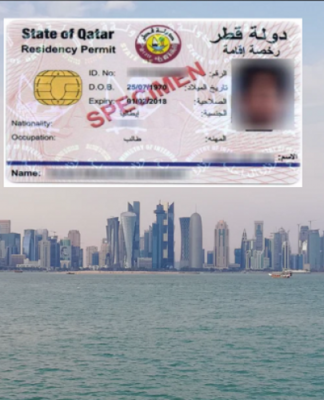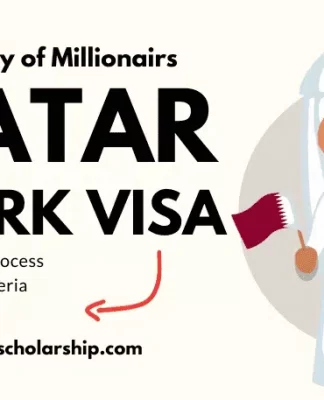
10 must know things about the amended labour law
A few amendments to the Law No 21 of 2015 were issued by the Emir HH Sheikh Tamim bin Hamad al-Thani in the form of Law No. 21 of 2015 meant for the regulation of entry, exit and the residence of expats.
Following are the highlights of the amended law:
1. The amended law gives expat workers the the right to exit the country for vacation, in case of any urgent circumstance, or any other purpose after informing the recruiter, according to the employment contract.
2. Expat workers can leave the country before the expiry of the employment contract after duly informing their employer.
3. In a scenario where an employer objects to the departure of the expat worker from the country, the expat worker has the right to approach the exit permit grievances committee.
4. The committee will strive to resolve all issues within 3 days of reception of the complaint from an expat worker.
5. In case an expat is not satisfied with the decision of the grievance committee, he/she can approach the Interior Minister for the rectification of the grievance.
6. The law mandates that the employer sanctions all kinds of leaves stipulated in the contract whenever an employee seeks to use the leave.
7. The law also directs employers to provide leave to expat employees in case of emergencies.
8. The Exit Permit Grievances Committee shall grant exit permits to all expats against him no serious complaints are found to be pending.
9. The expat workers have the right to contest any evidence that would be provided by the employers against them in the office of the Grievances Committee.
10. In case an expat has unsettled debts pending against him or her, he/she can appeal for clemency. Clemency appeals would be considered in case the expat needs to travel back home in case of an medical or family emergency.
New Qatar Labor Law: The entry, exit and residency of expatriates
How to change Jobs?
The new Law No 21 of 2015 regulating the entry, exit and residency of expatriates has stipulated some very crucial provisions for the expatriate workers in Qatar.
One of the first provisions of the law is that the service periods of an expatriate worker will be calculated from the day he/she started working for their employer, including the days of employment prior to the implementation of the law, as announced by Ministry of Administrative Development, Labour and Social Affairs.
People who feel like they are struck in their job but not sure and confident enough to really know what exactly they can do or from where to start can now go through the below points and can make a choice.
Qatar’s new sponsorship law remove the automatic two-year ban on the foreign workers and enables them to look for new options in the market as per their choice.
1. If you have fixed contract?
Employee completed fixed term contract period
Expats who have completed their fixed term contracts dont need approval from their employer for job change.
However, approval from MADLSA will br required and a written notice to employer is needed, the notice duration depends on the terms and conditions of the contract.
2. Not completed contract yet ?
Employee have not completed fixed term contract
Free switch of jobs is not available to employees who have not completed their fixed term contract, they need permission from existing employer, in case the employer didnt provide NOC, expat needs to stay out of Qatar till the contract expires. After the contract term is expired expat can come back to Qatar and can work for other company with the permission of MADLSA.
However, if the expat can prove he was mistreated by the employer, law enables them the right to demand transfer employment.
3. Do you have unlimited contracts?
5-years service done under open-ended contact
These Expats dont need approval from their employer for job change, only permission from MADLSA is required. Again the notice period need to be served after notifying the employer.
4. You have not completed unlimited contracts ?
Not completed 5 year service under open-ended contract
These Expats can not immediately change the job, permission from current employer is needed, in case the employer does not give NOC, expat needs to stay out of Qatar till the 5-year contract expires, later after expiration of the contract term, expats can return to Qatar and can join another employer with the approval from MADLSA.
Again the expat are given the right by the law to demand new employment if they can prove that they are mistreated by their current employer.
Expats who are planning to change their job have various options as below
1.) Expats no longer needs exit permits to leave qatar, as law no. 21 is replaced with a modernised contract based system. However, workers need to inform the authorities 3 days in advance.
2.) Employees dont need to sign new contract as per the new law.
3.) option to change job will depend on 2 factors- if the contract is fixed term or open ended, secondly service period age.
4.) New law states service period to be calculated from the day employees started working.
5.) This incorporates all days of employment accumulated before Law no. 21 is implemented.
Scenario 1
Employee completed fixed term contract period
Expats who have completed their fixed term contracts dont need approval from their employer for job change.
However, approval from MADLSA will br required and a written notice to employer is needed, the notice duration depends on the terms and conditions of the contract.
Scenario 2
Employee have not completed fixed term contract
Free switch of jobs is not available to employees who have not completed their fixed term contract, they need permission from existing employer, in case the employer didnt provide NOC, expat needs to stay out of Qatar till the contract expires. After the contract term is expired expat can come back to Qatar and can work for other company with the permission of MADLSA.
However, if the expat can prove he was mistreated by the employer, law enables them the right to demand transfer employment.
Scenario 3
5-years service done under open-ended contact
These Expats dont need approval from their employer for job change, only permission from MADLSA is required. Again the notice period need to be served after notifying the employer.
Scenario 4
Not completed 5 year service under open-ended contract
These Expats can not immediately change the job, permission from current employer is needed, in case the employer does not give NOC, expat needs to stay out of Qatar till the 5-year contract expires, later after expiration of the contract term, expats can return to Qatar and can join another employer with the approval from MADLSA.
Again the expat are given the right by the law to demand new employment if they can prove that they are mistreated by their current employer.
Other points of new law
1.) Prospective expats can see their job contact copy before leaving for their home country as obtaining a work permit needs MADLSA permission.
2.) Expats who leave Qatar and their employment and residency permits are terminated can return back to Qatar for new job immediately after receiving a new visa.
3.) Point 2 is not applicable for employees who are found guilty of misconduct with their old employer, moreover they face a ban of 4 years.
4.) Workers with fake passports can be fined up to QR25,000.
5.) In case workers completed their contract term and have a new job in hand, they can immediately return back.
6.) In case no new job contract in hand, expats needs to leave Qatar within a week of their residence permit termination.
Companies should have same visas to hire expatriates: Qatar Labor
A new law by the MADLSA stipulates that foreign immigrants seeking to change jobs in Qatar can only be hired by those companies which have the same visa for the same nationality, gender and profession as that of the candidate.
The Law no. 21 of 2015 on the Entry, Exit and Residency of Foreign Nationals puts forth that migrant workers who have completed the stipulated tenure with their current employers are eligible for change of jobs.
However, MADLSA in a statement has clarified that the change can be effected only if a valid vacancy is available.
For example, a “Filipino male accountant” who wants to leave his current employer and join another firm can be hired only by a company that has the approval for employing a “Filipino male accountant”.
These regulations are meant for all private-sector jobs in the country. MADLSA also stipulates that candidates who are on fixed-term contracts and want to join a new firm should submit a notice of 30 days prior to the termination of the contract.
Moreover, if an employment contract is open-ended, a worker should stay in the job for a minimum five years to be eligible for a change.
Furthermore, MADLSA announces that the new employer should not have any restrictions on recruitment, such as a hiring ban imposed by the authorities concerned for previous violation’s reported by the Gulf Times.
As a matter of act, age of the person looking for a new employer should be less than 60 years, as stated by MADLSA.
Meanwhile, the ministry is also planning to stop the renewal of employment contracts of expatriate workers aged 60 and above. The decision stipulates the exit of the expatriate worker after reaching the age of 60 years and accordingly, his residence permit would not be renewed.
Job change support
Expatriates who encounter problems or technical issues while trying to change over to a new job can contact the technical support section at the Ministry of Administrative Development, Labour and Social Affairs at E-notice@ADLSA.gov.qa or Phone: 40288888.
Six months temporary transfer allowed under new law
Transfer to other employer
An employer can grant a written permission to his employees to work with another employer for a period of six months, renewable for a similar period.
Part time job are now allowed Employees can take up part time job with another employer, with a written approval from his original employer, the Ministry of Interior said yesterday.
Staying out of Country, still can come back?
Expatriates staying out of the country for more than six months can re-enter the country with a “return visa”, within a year, if they hold a Qatari residency permit (RP) and after paying the fine.
New born RP possible
A newborn baby can get residency permit within 90 days from the date of birth or the date of entering the country, if the parents hold a valid Qatari RP.
No medical check up
Anyone who enters the country on a visit visa or for other purposes are not required to undergo the mandatory medical checkup if they stay for a period not more than 30 days. Foreigners are not allowed to stay in the country after expiry of their visa if not renewed.
E gates for all
Expatriates living in Qatar can leave and enter the country using their Qatari IDs through the e-gates.
Exit Permit Grievances Committee
According to Law No 21 of 2015 regulating entry, exit and residency of expatriates, which was enforced on December 13, last year, expatriate worker can leave the country immediately after his employer inform the competent authorities about his consent for exit. In case the employer objected, the employee can lodge a complaint with the Exit Permit Grievances Committee which will take a decision within three working days.
Change job before or after contract , complete freedom
Expatriate worker can change his job before the end of his work contract with or without the consent of his employer, if the contract period ended or after five years if the contract is open ended. With approval from the competent authority, the worker also can change his job if the employer died or the company vanished for any reason.
Three months for RP process
The employer must process the RP of his employees within 90 days from the date of his entry to the country.
Expat must leave within 90 days of visa expiry
The employer must return the travel document (passport) to the employee after finishing the RP formalities unless the employee makes a written request to keep it with the employer. The employer must report to the authorities concerned within 24 hours if the worker left his job, refused to leave the country after cancellation of his RP, passed three months since its expiry or his visit visa ended.
If the visa or residency permit becomes invalid the expat needs to leave the country within 90 days from the date of its expiry.
The expat must not violate terms and the purpose for which he/she has been granted the residency permit and should not work with another employer without permission of his original employer.
In case of a dispute the Interior Minister or his representative has the right to allow an expatriate worker to work with another employer temporarily with approval from the Ministry of Administrative Development, Labour and Social Affairs.
Application for switching employer in Qatar can now be submitted ONLINE
Applying for switching from one employer to another was quite a stress in Qatar when the Kafala system was in place, however, since its abolishment the process has become easier and pretty straightforward and hassle free.
Ever since the abolishment the Ministry of Administrative Development, Labour and Social Affairs (MADLSA), in collaboration with the Ministry of Communications and Transport for the purpose of creating awareness among lesser educated workers about the new labour law, has undertaken many initiatives such as the installation of kiosks at many labour camps with a motive to educate the workers about their rights as specified by the new labour law.
One of the most important reforms of the new law is that under the new law, expats are no longer required to seek approval from their existing employers to change jobs if they have already completed the length of a fixed-contract. All they need to do is to provide a written notice to their employer before the contract expires, informing their employer of their intention to change jobs at the end of their contract. The notice period depends on the terms and conditions in the contract signed by each employee.
Similarly, expats in open-ended contracts will also be able to change jobs without their existing employer’s permission, provided they have completed a five-year service period. Expat workers in open-ended contracts must provide a written notice to their employer prior to changing the job.
Finally, any expat who wishes to change his or her job will need to get an approval from the Ministry of Administrative Development, Labour & Social Affairs (MADSLA) prior to taking up their new employment.
To make matters even more convenient for expat workers, MADSLA recently introduced an e-service where the process of job change can be initiated. The prerequisites for successfully changing the job and how process works are as follows:
- Conditions such as nationality, gender and profession are no longer among requirements for job change approval. Expats were allowed to change jobs only if the new employer had an approval for the position with the same nationality, gender and profession. This clause has now been removed by the Ministry.
- For the job change to be approved there must be no restrictions against the new employer that would stop the change
- Workers looking to change jobs must submit a notice to the existing employer 30 days prior to the end day of the contract, in case of a fixed contract.
- The notice period for open-ended contract is slightly larger
- 30 days, if the contract duration is 5 years
- 60 days, if the contract duration is more than 5 years.
- The expat must attach a signed and scanned copy of the notice form with the job change application.
Expats wishing to avail the service must visit the link named Employer Change / Leave Country, Worker Notice E-Serviceon Ministry’s website. The applicants can use the service by entering their Qatar ID and mobile number, following which a pin number is sent to the mobile number of the expat. Once the expat enters this PIN number on the site, he/she can see all personal information like occupation, age and employers’ information listed on the site.
The Ministry also issued two models for job change only days back. According to a report published by QNA, the first model is to inform the employer about the desire to end the contract and leave the country or change job, but there is a need to identify the type of the contract whether it is fixed duration or open ended contract.
While filling in the form, the applicant needs to choose among the reasons stated in the forms which includes ending contract to leave the country in case of employer’s abuse, to change job by the end of the indefinite contract, end job contract to change employer (if the employer’s abuse confirmed), change employer by the end of the contract duration.
The second model indicated a number of reasons including end of contract to change job with consent of the two parties while the contract is still valid, to end the contract and leave the country before the end of the contract duration, to change employer seeking different type of work such as personal or family works, to end the contract during the probation period and end contract because of disciplinary termination and leave the country.
Four year ban for getting terminated on disciplinary grounds.
Working in a corporate setting can be quite stressful and stress can sometimes easily cause a person to lose his/her cool and do something extreme, which one would not normally do such as assaulting a co-worker, which can then not only cost him/her his job but also face disciplinary action.
According to Article 26 of the new law, if a foreign worker is fired as a punitive measure and he did not appeal his dismissal or his plea was rejected by a court, he shall not be permitted to come back to Qatar before the passage of four years.
- If your terminated or fired for as a punishment, you will be BANNED for FOUR Years.
- If the reason of termination is wrong/unexpectable dismissal, you can appeal in the Court.
- If Court rejected your appeal or if you failed in the appeal, you will be face four years Ban.
Here is a video which shows the same problem in an entertaining way:
So, it is better to keep your cool and not lose your temper as the price for it is totally not worth all the trouble that you may have to put up with, the biggest being ending up unemployed and if the case of assault is serious, the victim may also press charges and nobody wants that.
Learn can you come back after resigning
Working in a corporate setting can be quite stressful and stress can sometimes easily cause a person to lose his/her cool and do something extreme, which one would not normally do such as assaulting a co-worker, which can then not only cost him/her his job but also face disciplinary action.
According to Article 26 of the new law, if a foreign worker is fired as a punitive measure and he did not appeal his dismissal or his plea was rejected by a court, he shall not be permitted to come back to Qatar before the passage of four years.
* If your terminated or fired for as a punishment, you will be BANNED for FOUR Years.
* If the reason of termination is wrong/unexpectable dismissal, you can appeal in the Court.
* If Court rejected your appeal or if you failed in the appeal, you will be face four years Ban.
Here is a video which shows the same problem in an entertaining way:
So, it is better to keep your cool and not lose your temper as the price for it is totally not worth all the trouble that you may have to put up with, the biggest being ending up unemployed and if the case of assault is serious, the victim may also press charges and nobody wants that.
I am currently working in Qatar in a retail shop. I am having an open contract and I have completed one-and-a-half years with the company. Now, I want to move to another employer in Qatar itself. My current employer is not giving me NOC letter. I am getting good offers from other employers. I don’t want to lose the opportunity. Am I eligible to join other company? If yes, what should I do to join another employer without any ban or restrictions?
Answer: As per the new entry exit law (Law No 21 of 2015), the employee under an indefinite term employment contract can transfer the job with the approval of the appropriate authority after five years of service with the employer. If the employee wishes to transfer the employment prior to completion of five years in service, he or she shall require permission from their existing employer.
As per the law, there is no requirement of a no-objection certificate from the previous employer for a former resident to take up a new job in Qatar. In case of cancellation of residency permit, the person will be able to return to Qatar to take up employment immediately after being granted a new visa. The new law abolishes the current two-year ban on expatriates who want to come back to the country on a new visa. An expatriate who has got a new contract to work in Qatar can come back even the next day.
I am working in an automobile company in Doha and due to some financial difficulties, the company is reducing the staff. My contract is valid up to May 2018. If the company terminates me, can I return to Doha for another job? Will there any ban for me? Please advise.
A: As per the new regulations, if the company terminates and cancels the residency permit of an employee, he/she will be able to return to Qatar to take up a new employment immediately after being granted a new visa. The new law abolishes the current two-year ban on expatriates who wish to come back to the country on a new visa. An expatriate who has got a new contract to work in Qatar can come back even the next day.
Is your employer withholding your salary? Here’s what you can do now under new Law .
The Ministry of Administrative Development, Labour and Social Affairs (MADLSA) has put a new ruling that employees will have the right to switch jobs without getting a No-Objection Certificate (NOC) from their employers if the company fails to pay their monthly salaries within seven days of the due date.
According to an official from the MADLSA, a decision to this effect has been taken at the ministerial level and it will be implemented soon.
The official stated that the government wants all companies operating in the country to pay monthly salaries to their employees on time or in certain cases within seven days from the due date. If they fail to do so, employees of such companies will have the right to change jobs even if they have not completed the contract period, as reported by the Qatar Tribune.
He noted that few companies in Qatar are yet to adopt the Wage Protection System (WPS), adding that the government is taking action to identify those companies.
Many cases have come to light where abusive employers were found to be indulging in the illegal practice of not paying their employees. The issue has brought a lot of negative attention to Qatar, many international news outlets dubbed Qatar as a destination of modern-day slavery. Due to the acts of a few abusive and exploitative employers Qatar’s image when it comes to protecting workers’ rights has been left with a black spot.
What the law says:
According to Article 65 of the ‘current labour law’:
The Worker shall be entitled to the wages specified in the service contract and if the contract does not specify the wage the worker shall be entitled to the wage specified in the work regulations.
If the wage is not specified in accordance with the preceding paragraph the worker shall be entitled to a wage equivalent to the wage specified for work of a similar type in the establishment and otherwise in accordance with the custom applicable to the profession in the place of performance of the work and if there is no such custom the judge shall specify the wage in accordance with the requirements of justice.
This means that every worker is entitled to wages in return for his or her work, if an employer refuses to pay the wages, he or she is doing so in absolute contravention of the law. Furthermore Article 70 of the labour law states:
Any part of the wage to which the worker is entitled may not be attached and the payment thereof may not be withheld except for the execution of a judicial decision.
In case of attachment in execution of a judgment the Sharia alimony debt shall have priority over all other debts and the total of the sums attached shall not exceed 35% of the wage of the indebted worker.
The employer may not charge any interest on the loan he may grant to the worker and shall not deduct more than 10% from the wage of the worker in settlement of the loan.
The total of the sums to be deducted from the wage of the worker in settlement of the deductibles and debts due from him shall not exceed 50% of his aggregate wage. If the percentage which shall be deducted from the wage of the worker within one month exceeds this percentage the deduction of the excess percentage shall be deferred to the following month or months.
This clearly proves that withholding wages or salaries of employees for reasons other than allowed by the law is illegal and a violation of the employee’s rights.
Who is the most vulnerable to this exploitative practice?
Over 1.5 million foreigners work in Qatar, while the highly qualified and skilled workers may be having a time of their lives while working in Qatar for many prominent firms, the same isn’t true for the low-skilled or manual workers who are working in Qatar. The low-skilled segment of workers is very vulnerable to this abusive practice. A large number of low-skilled workers from the Asian countries like India, Nepal, Bangladesh, Sri Lanka are present in Qatar. One of the reasons that makes this group vulnerable is their low education and hence their unawareness about the legality or illegality of what they are being put through. This leads them to falling prey to exploitative employers who lure them into Qatar under false pretences. Once in Qatar their salaries are withheld citing one excuse or another, the Kafala law further compounds their problems as they cannot leave the country or change the employer without the consent of the employer.
Circumvention of the Wage Protection System (WPS):
In February 2015, following much deliberation the authorities approved the amendments to the labour law and one of the changes sought to fix the menace of ‘salary withholding’. To address this issue of non-payment of salaries to workers the authorities announced the Wage Protection System, modelled along similar systems that are implemented in Saudi Arabia and the UAE. The system was implemented in late 2015. According to the system, employers must ensure that the employees receive their salaries in their respective bank accounts well before the due date and the same should be verifiable by the Ministry of Labour and Social Affairs and the Ministry of Interior. Failure to comply with the WPS rules makes employers liable to punishment, fines, and denial of work visas. The system regardless of how well intentioned has its loop holes, which are being exploited by the abusive employers. For instance, there is no way to verify whether the payments that are deposited in the bank accounts of the workers are in fact being withdrawn by the workers themselves, the system is limited to ascertaining the arrival of payments in the workers’ accounts. There have been cases where employers are withdrawing money from the accounts of the workers’ themselves and the workers are being paid only paltry sum of what they actually deserve to receive.
What to do?
The authorities in Qatar have shown eagerness in allowing aggrieved workers to get their problems rectified. Towards that end the Ministry of Labor and Social Affairs in 2014 got kiosks installed across its branches in the country. The kiosks were installed with the purpose of allowing blue-collar workers to lodge complaints with the labour department with ease. The kiosks provide the facilities in many languages. However, workers generally tend to take their issues to their concerned embassy before doing anything else. The diplomats try to get their issues resolved at their level and most of the times it works. If the diplomats fail to get the issue resolved they advise the workers to file a formal complaint with the Department of Labor Relations.
After the complaint is filed, the Department arranges a meeting between the worker and the employee and many cases are resolved at this stage as well, however, there are some employers who refuse to cooperate with authorities or do not fulfill the promises they made during the reconciliation meetings, in such cases the matter lands in the Labour Court and further compounds the problems for the workers as the legal proceedings take a heavy toll on their already slim pockets. Furthermore, during the legal battle the employers stop all payments to the workers which includes food and accommodation allowances, leaving the aggrieved workers in a lurch. The aggrieved workers may get justice but it takes time as courts take time to issue a verdict.
So, if a worker ends up taking his or her employer to the court over any issue, he or she can seek a NOC from the Ministry of Interior while the matter with the previous employer is sub-judice and also the expat community should make sure to support such workers by making small contributions which would go a long way towards his or her betterment.
Here Is How To HANDLE Your ABUSIVE Employer Under NEW LAW!
Authorities in Qatar abolished the much-abused Kafala system in December of last year and in its place a new labour law was introduced with the aim of safeguarding the rights of expat workers in the country. The abolishment of Kafala has been welcomed by most people and dubbed by many experts as the beginning of the reformation process.
In order to create awareness among lesser educated workers about the new labour law, the Ministry of Administrative Development, Labour and Social Affairs (MADLSA), in collaboration with the Ministry of Communications and Transport has installed kiosks at many labour camps with a motive to educate the workers about their rights as specified by the new labour law.
Regardless of how strict a law is or how many protections are enshrined in the law for the workers, there always will be that minority of exploitative employers who take undue advantage of the circumstances their employees are in. Such exploitative employers nonchalantly withhold wages of the workers, pay only half of what they rightfully deserve and some even go to the extent of torturing their workers. This minority of exploitative employers end up bringing an entire country into disrepute. To address problems such as these a robust redressal mechanism has to be in place, through which the aggrieved workers/employees can bring their unfortunate plight into the notice of the authorities without having to fear any repercussions from their employers.
The Ministry of Administrative Development, Labour and Social Affairs is striving to put exactly such a system in place here in Qatar. MADLSA has urged the expat workers to report any violation or abuse of their rights, which are guaranteed by the Labour Law, the Labour Relations Department at the Ministry of Administrative Development, Labour and Social Affairs has launched an awareness campaign targeting workers. The objective of the campaign is to raise the awareness among workers about their rights and duties under the law.
Job related complaints can be lodged by the workers either online or by personally visiting the Ministry headquarters or its Industrial Area branch.
Workers wishing to file a complaint are required to fill in a special from for complaints, sign it, attach a copy of their ID and submit it to the employee concerned at the Ministry’s office, who will verify whether the complaint falls within the jurisdiction of the Ministry or not.
For complaints that are lodged online, the Labour Relations Department sends out an SMS to the company representative, against whom the complaint has been launched, asking him/her to visit the Ministry, a copy of the request is also forwarded to the complainant.
For the amicable resolution of the problems, the complaints are discussed in the presence of the both parties (employee and employer). If no breakthrough is achieved, the matter is then referred to further investigations or transferred to a competent court for settlement.
The Ministry has also installed 11 self-service machines that operate in 11 languages, which the workers can use to lodge complaints against their employers. The Ministry is planning to increase the number of such machines to 100 and most of them will be installed inside labour camps.
The Hukoomi portal of Qatari Govt. has a dedicated page to deal with labour complaints, it says, “Qatari Labor Law guarantees rights and payments of labor from different nationalities. Workers who are working in different companies and institutions inside Qatar can submit labor complain to Work Relations Department at the Ministry of Administrative Development, Labor and Social Affairs (MADLSA) in case of any dispute between workers and their employer”.
To lodge a complaint against an employer the aggrieved worker must fill an application form, which can be downloaded from here, and then submit the completed form to the Labour Relations Department at MADLSA.
Wage Protection System hailed as a success, 7 days delay right to change job
After a year of its introduction the Wage Protection System (WPS) is being hailed as a success. The WPS requires employers to directly transfer workers’ salaries into their specified bank accounts. Initially the workers had to reportedly face inconvenience due to a dearth of ATM machines, however, such issues have been resolved effectively by the authorities.
As workers have grown familiar with the use of ATM machines and other forms of online transactions, the workers have been able to reap the benefits of the WPS.
“In the beginning we faced some hurdles as there were delays in the opening of bank accounts and thereafter the crediting of the salaries to those accounts as our staff was not well-versed with the procedures and processes of digital banking, however, with time they learned the ropes and now everything is running smoothly and both employees as well as management are happy with the WPS”, said a mid-level manager of a Doha based construction company.
Receiving their salaries on time has always been a concern for the workers in Qatar, however, with the introduction of the WPS things have improved considerably and also a lot of ATM machines have been installed in the vicinity of the areas where the workers reside.
Similarly, firms that used to work on the basis of credit before the implementation of the WPS and which inadvertently led to the delay in the payments of the workers have been forced to infuse additional capital into the business as the WPS requires them to pay the salaries of the workers on time.
Since the implementation of the WPS the complaints from workers regarding the non-payment or delay in the release of wages or salary have fallen substantially during the past 6 months, before the implementation of WPS such complaints were very common.
Social workers similarly are all praise for the WPS as it has benefited the workers particularly expat workers in a substantial way. Social workers have also organised campaigns to make low educated workers aware about the online banking and the use of ATM machines.
Large companies have also provided the requisite training for low-income workers, however, it has been alleged that small and mid-sized companies are ignoring the need to familiarize the less educated workers with the new system.
Initially, many employers as well as employees had concerns about the workings of the WPS, however, now the system has started to deliver benefits to the workers. Many business are hiring people specifically to train the workers on how to use ATM machines and perform online transactions.
Banks on their part have increased the number of ATM machines around the areas where low-income workers reside and also hired more people to deal with the grievances of the low-income workers.
The Ministry of Administrative Development, Labour and Social Affairs (MADLSA) has put a new ruling that employees will have the right to switch jobs without getting a No-Objection Certificate (NOC) from their employers if the company fails to pay their monthly salaries within seven days of the due date.
According to an official from the MADLSA, a decision to this effect has been taken at the ministerial level and it will be implemented soon.
The official stated that the government wants all companies operating in the country to pay monthly salaries to their employees on time or in certain cases within seven days from the due date. If they fail to do so, employees of such companies will have the right to change jobs even if they have not completed the contract period, as reported by the Qatar Tribune.
He noted that few companies in Qatar are yet to adopt the Wage Protection System (WPS), adding that the government is taking action to identify those companies.
Furthermore, the official said that any worker can approach the committee with complaints against the employer. If the grievances of an employee against the company is found to be true then the employee will be given a chance to change job even without completing the contract period.
While, if the employee is found to be guilty, the committee will allow the company to terminate the job of the employee.
The terminated persons will not be allowed to enter the country for four years from the date of termination. The four-year ban can be extended depending on the seriousness of the misdeed of the worker, as stated by the official.
In this connection, a Swiss company has also been hired by the ministry to smoothen the procedure of recruitment of expatriate workers and it will start functioning soon.
Any company operating in Qatar will have to hire the services of the Swiss firm to complete the employment prerequisites in the source country, the official noted.
Are you currently facing work ban in Qatar ?
If you have worked in Qatar but now you are banned you can come back without NOC if you have new offer by a new employer.
New Job offer from new employer that is all you need to come back to Qatar in case you are facing work ban.
All the work relating to the drafting of the executive regulations of the new law on the entry, exit and residency of expatriates in Qatar has been completed.
According to a report, the Ministry of Administrative Development, Labour and Social Affairs has finished all the necessary procedures regarding the new system of employment contracts.
The new law stipulates that workers who are newly recruited from outside the country will have to sign these before taking up jobs in Qatar.
An awareness campaign will be held through the social and local media to instruct people on their rights and duties in accordance with the new law, as reported by Qatar Tribune.
The ministry will also test the new system of electronic contracts in collaboration with the departments concerned to ensure its ability to meet the requirements.
It may be noted that HH the Emir Sheikh Tamim bin Hamad al-Thani issued Law Number 21, last year which abolishes the stipulations of Law Number 4 of 2009 regarding Regulation of the Expatriates Entry, Departure, Residence and Sponsorship.
The current two-year ban on expatriates who want to come back to the country on a new work visa will no longer be applicable, with the issuance of the law.
Moreover, a foreign worker who has got a new contract to work in Qatar can come back even the next day, provided he has met the other requirements like visa.
Assistant-director general of the Department of Border, Brigadier Mohamed Ahmed al-Atiq, , Passport and Expatriates Affairs, had pointed out that the two-year ban on return of an expatriate worker was directly linked to the sponsorship (kafala) system. Since the new law abolishes kafala, a person who had previously worked in Qatar would not have to seek the approval of his former sponsor if he is recruited by a new employer, reports Qatar Tribune.
Article 26 of the new law puts forth that if a foreign worker is fired as a punitive measure and he did not appeal his dismissal or his plea was rejected by a court, he shall not be permitted to come back to Qatar before the passage of four years.
The Most Awaited Qatar NEW LABOR LAW Fully Explained by Ministry
The new Law No 21 of 2015 regulating the entry, exit and residency of expatriates has stipulated some very crucial provisions for the expatriate workers in Qatar.
One of the first provisions of the law is that the service periods of an expatriate worker will be calculated from the day he/she started working for their employer, including the days of employment prior to the implementation of the law, as announced by Ministry of Administrative Development, Labour and Social Affairs.
The law also puts forth that the workers would no longer be needing the approval of their existing employers to change jobs if they successfully complete the duration of the contract.he expats, as such, need to inform their employer of their intention to change the job before the contract ends.
Similarly, those working on open-ended contracts may change jobs without the permission of the employers, provided they render five years of service.
The expats would need to get the approval of the Ministry of Administrative Development, Labour and Social Affairs prior to taking up their new employment.
If a worker can demonstrate that they have been exploited or mistreated by their employer, the law gives them the right to demand a transfer of employment.
It may be noted that, under the provisions of the law, a job contract is mandatory for obtaining a work visa to Qatar. All prospective migrant workers will be able to see a copy of their job contract, prior to leaving their native countries, a statement from the Ministry noted.
Procedures for applying for an exit permit under the new law and other important aspects of the entry and residency rules have also been detailed by the Ministry, as part of an ongoing campaign to raise awareness among the public of the new law.
The Administrative Ministry in collaboration with the Ministry of Interior held a series of workshops and seminars for this purpose with participation of Qatari businessmen, officials from foreign embassies and representatives of different expatriate communities, as reported by The Peninsula.
An official of the Ministry explained that the Government of Qatar takes a holistic approach to migrant worker welfare. Several new protections for workers during all stages of the migration cycle – from recruitment to repatriation have been included in the new law.
He further added that all expatriates, be it domestic, blue-collar and white-collar, will benefit from the changes. The new law is set to benefit 2.1 million salaried workers.
Fresh options for workers to change jobs and apply for exit permits, as well as new regulations to prevent the exploitation of low-income workers have been included in the law.
Moreover, the existing Kafala system would be abolished and it its place will come a modernised, contract-based system.
In cases where the employer rejects a leave request, the expatriate worker can appeal to the Exit Permit Grievances Committee, which has to respond to all requests within 3 days, as part of the provisions of the new law.
Employers can be fined upto QR25,000 per workers if found with confiscated passports. This reportedly will be the toughest financial penalty against passport confiscation within the region.
For a better understanding of the new law among the readers, particularly the working class, the Ministry of Administrative Development, Labour and Social Affairs has explained some of the frequently asked questions. These are mentioned as follows:
How can expatriates apply for an exit permit under the new rules?
To apply for an exit permit, for annual leave or an emergency, the workers would first need to submit their application in writing to their employer, as per the terms of their contract.
Exit permit requests will be approved and processed by employers immediately in a majority of cases. If at all the employer rejects the request, expats will be able to apply directly to the Exit Permit Grievances Committee.
Expats are able to submit requests via an e-government services programme, or in-person at government service complexes and police stations throughout Qatar. Once submitted, all exit permit requests received will be decided upon within 72 hours, reports The Peninsula.
The Exit Permit Grievances Committee will then conduct an immediate background check of the applicant to ensure that no active or pending criminal proceedings, or financial claims, are currently against him.
The committee would hold a interrogatory session with the applicant’s employer and ask if he/she have any objections to the request.
Here, valid objections may include reasons like the the employee has committed a fraud or the is attempting to evade prosecution for a crime.
It is then the employer’s task to convince the relevant authorities before the 72-hour working period of the Committee closes, that a criminal case should be opened up against the worker. Failing to do so will automatically grant the worker an Exit Permit.
What will happen if the Exit Permit Grievances Committee is unable to contact the expatriate’s employer?
In case the Committee cannot contact an expatriate’s employer within 72 hours of their submission of exit permit application, the permit would be approved, provided that the worker passes all relevant background checks.
What will happen where there is an emergency and an expatriate needs to return sooner?
Usually, the current maximum for the appeals to be approved is 72 hours. However, in reality the system can operate much faster. During emergency of any sort, the committee can expedite this timing.
Who are the Members of the Exit Permit Grievances Committee, and how does it operate?
The members forming the The Exit Permit Grievances Committee consist of officials from the Ministry of Interior, the Ministry of Administrative Development, Labour and Social Affairs, and representatives of the National Human Rights Committee.
The worker will have the opportunity to contest any evidence that may have been used against them during hearings. They will also have the opportunity to appeal for clemency, in cases where they owe debt but need to return home for a medical or family emergency.
In cases where an expatriate is prevented from receiving an exit permit, will their family members be able to leave the country?
There is no barrier for family members and dependents to leave the country, unless they are a part of any crime committed by the expatriate under investigation.
How will expats be able to change jobs under the new law?
Under the new law, expats will no longer need approval from their existing employer to change jobs if they complete the length of a fixed-contract. However, it is required that expats in fixed-contracts provide written notice to their employer before the contract expires, advising their employer of their intention to change jobs at the end of their contract. The duration to notify the employer will depend on the terms and conditions in the contract signed by each employee.
Expats in open-ended contracts will also be able to change jobs without their existing employer’s permission, provided that they complete a five-year service period. However, it is required that expats in open-ended contracts provide a written notice to their employer prior to changing job.
All Expats who wish to change jobs will also need to get the approval of the MADSLA prior to taking up their new employment.
How are service periods calculated under the new law?
All service periods will be calculated from the day that the employee started working for their employer. This includes all days of employment accumulated prior to the implementation of Law No. 21 of 2015.
Will expatriates be able to change jobs prior to completing their agreed service period?
In cases where a worker wishes to change job prior to completing the length of their contract, they will need to seek permission from their existing employer. In cases where the worker can demonstrate they have been exploited or mistreated by their employer, the law gives them the right to demand to transfer of employment.
If expats leaves Qatar, how long will they need to wait before returning to the country to take up employment?
Expats will be able to return to Qatar and take up employment immediately after being granted a new visa. However, this will not be the case for workers who have been found guilty of misconduct whilst working for their previous employer in Qatar.
How long do employees have to find another contract in the case of termination of a contract?
Employees can get up to three months’ time to find work by notifying the Ministry of Administrative Development, Labour and Social Affairs. After finding a new job, the workers will have to return to the Ministry and present their new employment contract. Those who do not find any work within the given period must leave Qatar.
If You Get FIRED or TERMINATED, You will Get FOUR YEARS BAN as per Qatar New Labor Law. How You Can Avoid THIS?
According to Article 26 of the new law, if a foreign worker is fired as a punitive measure and he did not appeal his dismissal or his plea was rejected by a court, he shall not be permitted to come back to Qatar before the passage of four years.
- If your terminated or fired for as a punishment, you will be BANNED for FOUR Years.
- If the reason of termination is wrong/unexpectable dismissal, you can appeal in the Court.
- If Court rejected your appeal or if you failed in the appeal, you will be face four years Ban.






























